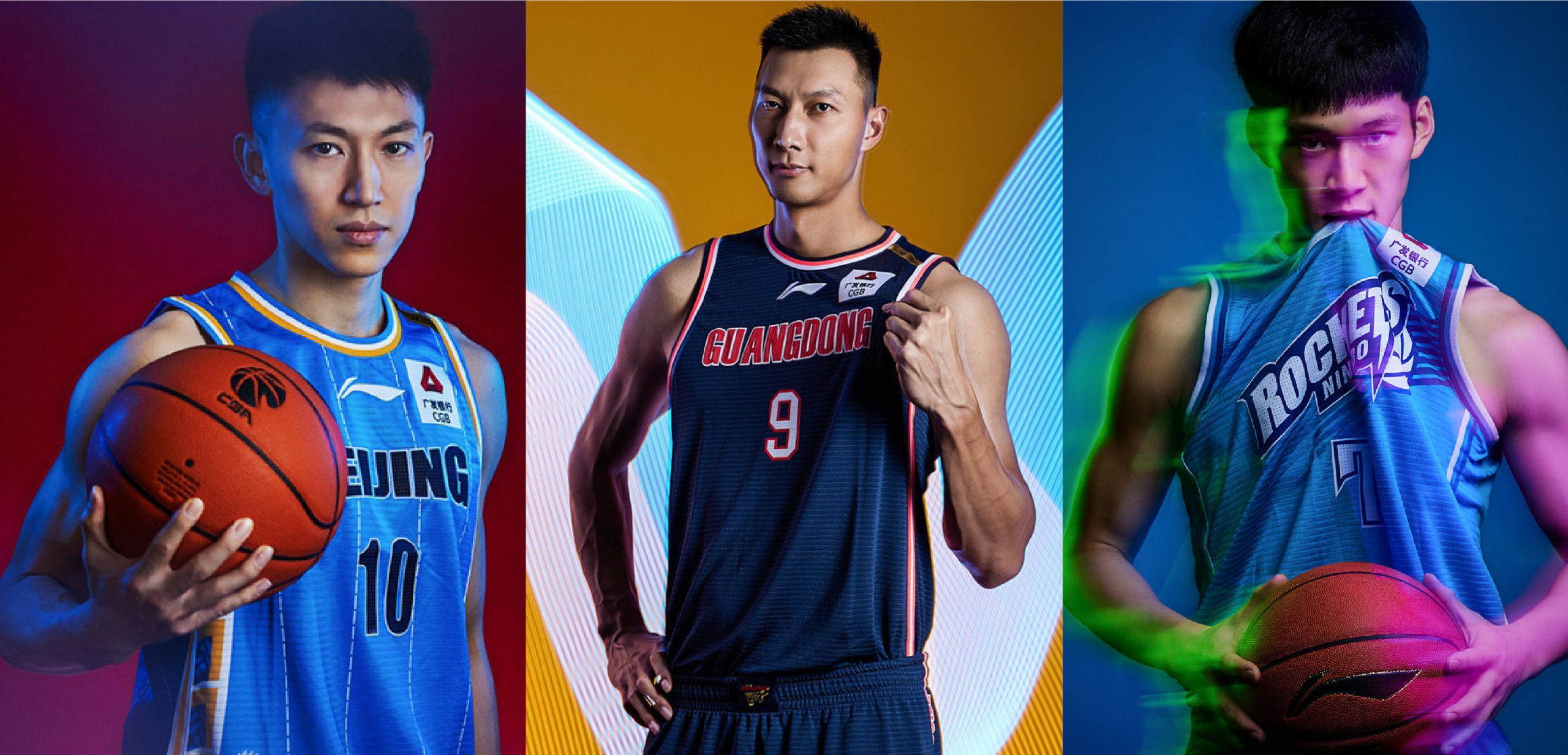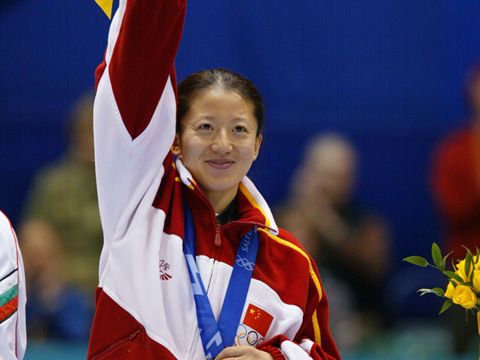2021-22 CBA season tips off looking radically different than recent past
China’s COVID-19 restrictions have taken the air out of its top domestic basketball league: Only five foreign players are currently signed with CBA teams. One of those, however, is a familiar name: Jeremy Lin, who is back with the Beijing Ducks.

The 27th Chinese Basketball Association (CBA) season tipped off last weekend in its familiar COVID bubble in Zhuji, Zhejiang province. There will be 38 regular season games — a double round-robin for the league’s 20 teams — played in three stages. The first stage will end on November 14, with the playoffs scheduled for April 24, featuring the top 12 teams.
This season will see the highest number of domestic players, with many taking spots vacated by international players who are unwilling to play in a bubble at a time when many sports leagues around the world are operating with full stadiums and arenas.
In China, players are forced to stay within the confines of their team hotel when not at the arena. But the league has said that depending on how successfully COVID is contained over the winter, teams may be allowed to play in their home cities during the as-yet unscheduled second and third portions of the season.
As CBA president Yáo Míng 姚明 said at a press conference last Tuesday: “I hope that with the collective effort of everybody involved, our games will be back to the fans in our teams’ cities sooner rather than later.”
This year sees the arrival of an expansion franchise.
The Ningbo Rockets debuted yesterday in a 105-92 loss to Shanxi Loongs. Ningbo boasts a young team with an average age of just 22. The Rockets are the replacement for former army team Bayi Rockets, which abruptly withdrew from the league on opening day of last season.
The biggest change this year will probably be the lack of international stars. Some recognizable names from the past who will be missing include Joseph Young, the former Pac-12 player of the year with Oregon; Sonny Weems and MarShon Brooks, both of the defending champs Guangdong Southern Tigers; and Jimmer Fredette, BYU’s 2011 national player of the year who set Shanghai on fire in his one season in 2020-21 (including a 70-point game).
This is despite the league’s announcement that teams would be allowed four foreign players each.
There are currently only five foreign players registered this season: new Shanghai Sharks signees Jamaal Franklin and Noah Vonleh, the Shenzhen Aviators’ Askia Booker, the Beijing Royal Fighters’ Isaac Haas, and — the biggest name by far — Jeremy Lin, who confirmed last week on Instagram that he would eventually be joining his old CBA team, the Beijing Ducks. (Lin also said he spent 11 weeks away from the court.)
The Ducks, who won yesterday 87-71, also have domestic talent in the likes of veterans Fāng Shuò 方硕, Zhái Xiǎochuān 翟晓川, and Liú Xiǎoyǔ 刘晓宇.
The absence of international players could make this season unpredictable. Guangdong still looks like the most impressive team, with the return of Yì Jiànlián 易建联 from a year-long injury. Captain Zhōu Péng 周鹏 (Defensive Player of the Year) and 23-year-old up-and-comer Hú Míngxuān 胡明轩 (Sixth Man of the Year) remain on the club. Still, losing Weems and Brooks is a big deal; Guangdong barely beat the Liaoning Flying Leopards last year with these two carrying large loads.
Speaking of Liaoning: As long as Guō Àilún 郭艾伦 — who averaged 23 points and 8 assists last year — is healthy, the Flying Tigers should continue to be in contention. While losing the consistently high-scoring duo of O.J. Mayo and Kyle Fogg is sure to hurt, Liaoning will try to fall back on its strength at the point guard position. Guo is the national team’s starting point guard, while his backup is fellow Flying Leopard Zhào Jìwěi 赵继伟.
The Xinjiang Flying Tigers, on the other hand, look like they could be in for a tough time. Losing talismanic center Zhōu Qí 周琦 to the Melbourne Pheonix of Australia’s National Basketball League could cause significant problems for the team that has been perennial contenders for the past few seasons. In the opening game against the Zhejiang Lions, Xinjiang was absolutely picked apart, losing 108-69. Although national team player Abdusalam (阿不都沙拉木·阿不都热西提 Ābùdōushālāmù Ābùdōurèxītí) remains, the loss of Zhou, along with big man Donatas Motiejunas, will see Xinjiang’s strength inside the paint turned into a weakness.
Perennial disappointments Shanghai Sharks — Yao Ming’s old team — look like an outside bet this season. While the club has lost Fredette — who remains a free agent, and did express interest in returning to Shanghai last month — the signing of Jamaal Franklin from the Shanxi Loongs and Noah Vonleh from the Brooklyn Nets gives them the hope of challenging for the title. Shanghai also added national teamer Kelanbaike Makan (可兰白克 Kělánbáikè) from the Xinjiang Flying Tigers, who led the team with 21 points in a 120-94 win over Tianjin. (One more player of some intrigue is Yán Péng 颜鹏, who played for Team China at the Tokyo Olympics 3×3 basketball tournament.)
~
Salt Lake double gold medalist Yang Yang frontrunner to light Olympic torch
Sources inside the Chinese Olympic Committee have confirmed that China’s first-ever Winter Olympic gold medalist Yáng Yáng 杨扬 is likely to be the torch bearer at the Beijing Olympics opening ceremony in four months.
Yang, 45, is one of China’s most decorated athletes and one of the most successful short track speed skaters of all time.
During a career that lasted from 1997 to 2006, Yang won two Olympic golds at Salt Lake City 2002. She accumulated a staggering 34 world titles in total, including a record breaking six consecutive overall world titles.
Elected as an International Olympics Committee member in 2010, as well as appointed to the World Anti-Doping Agency committee, Yang is credited for turning China into a significant player in the speed skating world and kick-starting Chinese interest in the Winter Olympics.
~
Other Stories:
In China’s Super League, everyone seems to be losing (NYT)
China race dropped from the F1 calendar (BBC)
IOC rules out pressuring China over human rights abuses (Reuters)
Beijing Games ready for Olympia flame but wary of protests (Reuters)
Former Chinese kickboxer accused of being a loanshark (SCMP)
Badminton: China defeat Japan to claim Uber Cup win (Inside the Games)
Inside the test events, What to expect from China’s Winter Olympics (France 24)
The China Sports Column runs every week on The China Project.






